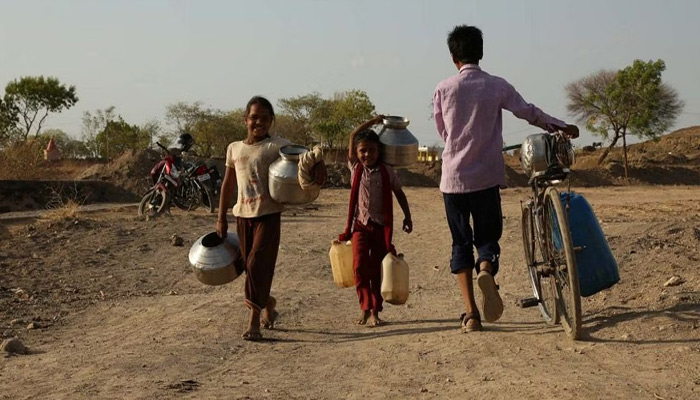Climate change by the turn of the Century could lead to global warming that could trigger heart attacks and heat strokes.
In some of the most populated areas of the world, including India and the Indus valley, new research has predicted.
Interdisciplinary research from Penn State College of Health and Human Development, Purdue University College of Sciences and Purdue Institute for a Sustainable Future — published in the “Proceedings of the National Academy of Sciences” — indicated that warming of the planet beyond 1.5 degrees Celsius above pre-industrial levels will be devastating for human health.
Human bodies can take only certain combinations of heat and humidity before experiencing heat-related health problems, such as heat stroke or heart attack.
The study indicates that if global temperatures increase by 2 degrees Celsius above pre-industrial levels, 2.2 billion residents of Pakistan and India’s Indus River Valley, 1 billion people in eastern China and 800 million in sub-Saharan Africa will experience hours of heat that surpass human tolerance.
The cities that would bear the brunt of this annual heat wave will include Delhi, Kolkata, Shanghai, Multan, Nanjing and Wuhan.
Because these areas comprise low and middle income nations, the people may not have access to air-conditioners or other effective ways of cooling their bodies.
If global warming of the planet continues to go 3 degrees Celsius above pre-industrial levels, the spiked heat levels could affect the Eastern Seaboard and the middle of the United States – from Florida to New York and from Houston to Chicago. South America and Australia would also experience extreme heat, the research found.
But people in developed nations would suffer less than the developing nations, where the old and the ailing may die.
“The worst heat stress will occur in regions that are not wealthy and that are expected to experience rapid population growth in the coming decades,” said the research paper’s co-author Matthew Huber, Professor of Earth, Atmospheric and Planetary Sciences at Purdue University.
“This is true despite the fact that these nations generate far fewer greenhouse gas emissions than wealthy nations. As a result, billions of poor people will suffer, and many could die. But wealthy nations will suffer from this heat as well, and in this interconnected world, everyone can expect to be negatively affected in some way,” he added.
To stop temperatures from increasing, the researchers said the emission of greenhouse gases, especially the carbon dioxide emitted by burning fossil fuels, must be reduced. If changes are not made, middle-income and low-income countries will suffer the most, they said.

